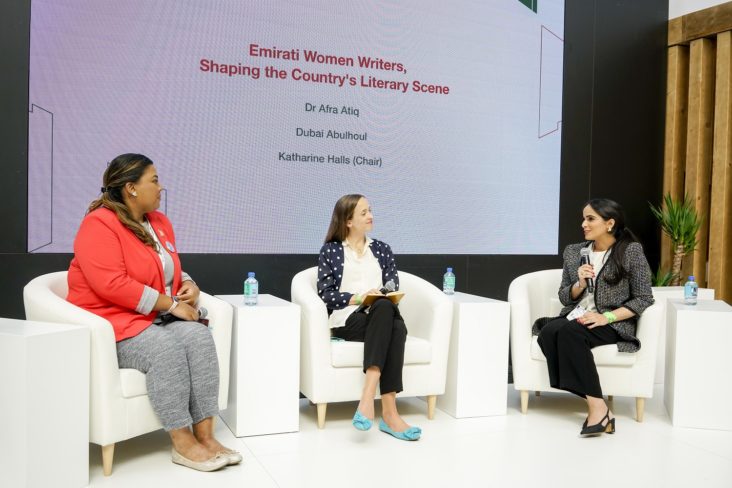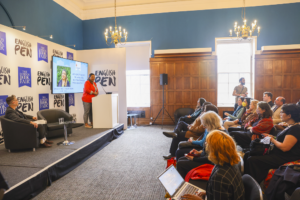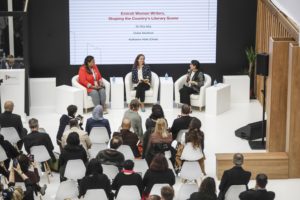Sharjah Highlights Role Of Female Emirati Writers In Shaping The UAE’s Cultural Landscape At The London Book Fair

The influential role played by female Emirati writers in developing the cultural landscape of the UAE and Arab world was the focal point of a panel discussion organised by the Sharjah Book Authority (SBA) as part of the emirate’s participation as the London Book Fair (LBF)Market Focus.
The discussion, titled ‘Emirati Women Writers, Shaping the Country’s Literary Scene’, featured Emirati poet and spoken word artist Dr. Afra Atiq, and novelist Dubai Abulhoul, who also highlighted the impact of the UAE’s heritage, language and geographical location on them.
Dr. Atiq spoke about her relationship with poetry, noting that she was always aware that there was a poet within heras she searched for the right way of expression. She noted that even though it was unclear in the beginning, she eventually found poetry, stressing that poets or novelists do not start their career with a quick decision, but by gradually discover themselves and their literary passions.
“I grew up in a loving and supporting family open to other cultures. My parents tell me stories about the time when I was little and would open the dictionary to stare at the words as if was wondering how I could used them to express my feelings. The shapes of words charmed me, and I felt their power before I was able to read them.That was the beginning of my attachment to words,” she added.
“Poetry is an integral component of Emirati culture. We have the Nabati, which is a popular pick for public and private events, meetings and majlises with families, friends and loved ones. Being brought up in a cultural environment in which the art form was popularly practiced and appreciated, made my career as a poet much easier,” she added.
For her part, Dubai Abulhoul said: “My grandmother’s folktales made me fall in love with fiction. When I read Harry Potter, I wanted to write the Emirati version of it, and I did that when I was 12 years old.”
On choosing to write her books in English, she added: “I chose to do so because I believe that writing in a foreign language that is different from one’s mother tongue nurtures the writer’s experience, perceptions and intellect. No matter what language writers use to express themselves, the written word remains powerful, magical and capable of driving positive change.”
“Even though I write in English, the subjects I choose are mostly inspired by the Emirati heritage, folktales in particular, to increase their modern-day appeal without compromising their essence,” Abulhoul concluded.
Poetry is a tool for change that engages all cultures like music
In a session titled ‘Author of the Day: Dr AfraAtiq in Conversation’, the Emirati poet read three original verses to illustrate the art form’s power of expression and imagery. On poetry’s role in preserving cultural heritage, she said: “Poetry is a serious responsibility, and every time I write or read poetry, I feel like I am fulfilling mine. Many people ask me about the things that writing changed in me, and my answer is that writing does not change us. We need to change to become good writers; we have to read, do research and learn to further our capabilities of literary creation.”
Atiq also said that she was optimistic about the future of poetry and Arabic literature in general because written texts are more readily available today than they were before. The fact that they come in diverse formats like eBooks or social media also make them more accessible, she added.



